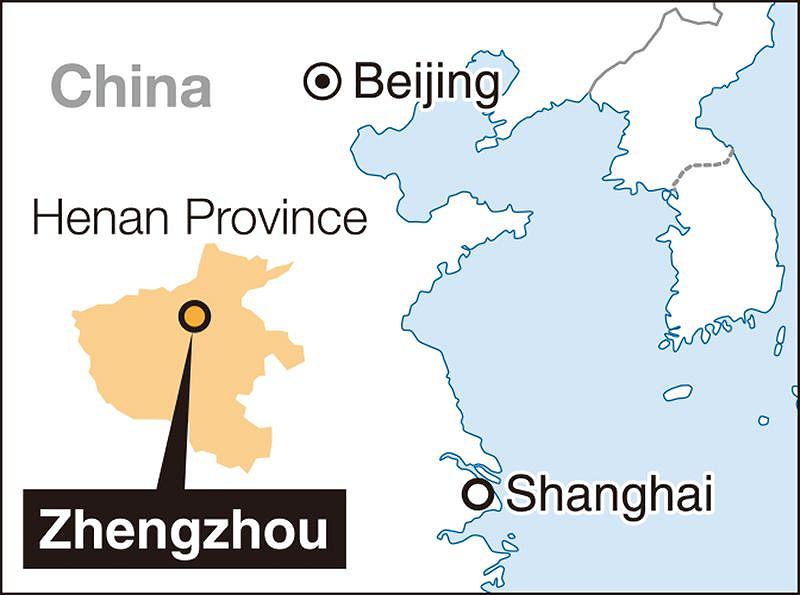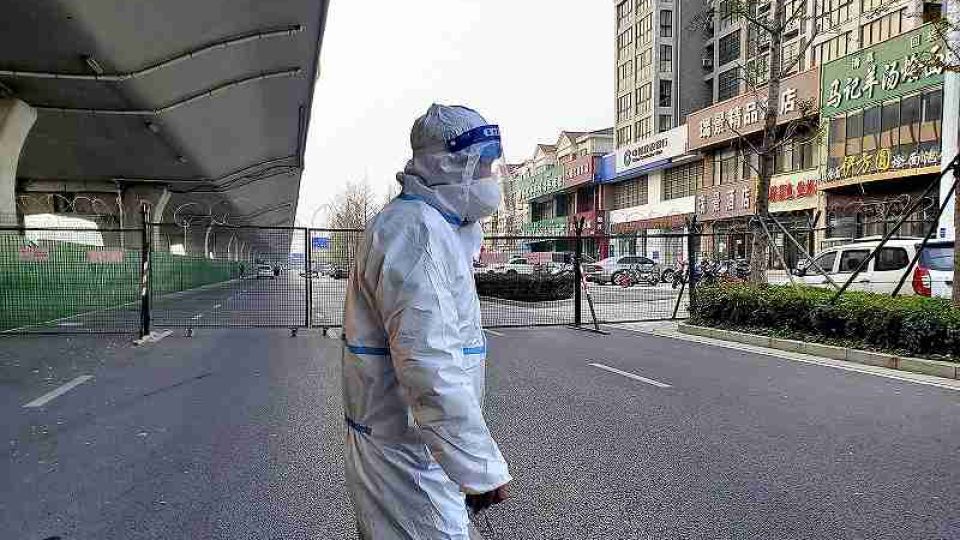November 17, 2022
TOKYO — Beijing’s “zero-COVID” policy has finally caught up with shipments of iPhones, following confirmations of outbreaks at factories in Zhengzhou, Henan Province, which is known as “iPhone City,” as it accounts for the majority of global production.
The situation has cast a shadow over projected sales of the latest iPhone series.
“No one is allowed to enter except when supplies and goods are being brought in and out,” a man wearing protective clothing outside a factory said Tuesday.
The three factories in Zhengzhou operated by Taiwan electronics giant Hon Hai Technology Group, also known as Foxconn, produce mainly iPhones commissioned by Apple Inc. of the United States. The factory in the city’s airport area — the largest among the three factories — and its adjacent residential area are all surrounded by a fence more than 2 meters high, effectively under lockdown.
According to Chinese media, this factory adopted a quarantine “bubble” for its production in mid-October. Workers are prohibited from coming into contact with people outside the bubble, including when traveling to and from dormitories by bus. They also have to take PCR tests once or twice a day.
The provincial and city governments are providing full support by dispatching PCR testing staff to ensure the factory’s continued operations.
Infections have been relatively subdued at another factory located in the center of the city and people can approach it. A worker in his 30s was receiving foodstuffs from an acquaintance over a fence on Nov.8. “We must not stop production, but we’re really distressed because the future is uncertain,” he said.
The number of workers at the three factories totals 200,000 to 300,000, many of whom are believed to be from rural areas.
Foxconn initially said “production and operations are relatively stable,” but, according to the Zhengzhou city government, the number of infected people in the city stood at 1,043 as of Nov.8. This is more than six times the number on Nov. 2, and there is no sign that the number of infections will abate.
According to Chinese media, in one factory building, two large production lines operated by about 1,000 workers have been consolidated into one. When one worker is infected, dozens of others are forced to be quarantined, and the manpower shortage is accelerating, according to media reports.
On Nov. 1, Foxconn announced that it would pay a bonus of 15,000 yuan, or about ¥300,000, to workers who work a full shift schedule this month, and also began to hire temporary workers. The company also set up a 24-hour complaint and consultation service in preparation for a possible mid- or long-term lockdown.
Meanwhile, for workers who wish to leave the factory, buses are available to take them to the station or airport. This provision is believed to exist due to Apple’s emphasis on the health and safety of workers.
Foxconn has many factories, mainly in Zhengzhou and other inland areas where wages are low, and employs around 1 million workers. The factories in Zhengzhou are said to account for about 80% of the total production of the latest iPhone 14, which was released in September.
On Nov.6, Apple acknowledged in a statement that the utilization rate of factories in Zhengzhou is declining and indicated that the shipment volume is expected to be lower than anticipated.
Apple has moved part of its production of the iPhone 14 series to India, but the number of units produced there is expected to be small. The shortage may become apparent during the year-end sales season when demand is expected to peak.

The Yomiuri Shimbun

